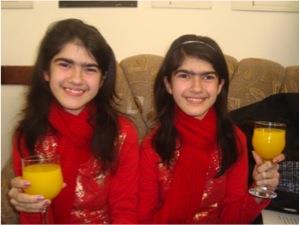Large-scale, all-encompassing training and transition programme
- Solution
- Programme “Right to Earn a Living”
- Organization
- Bridge of Hope
- Country of Implementation
- Armenia
- Region
- Europe
- Subregion
- CIS and Associated States
- Start Year
- 2013
- First published
- 31.01.2017
Solution details
People
“Working places are not always suited to the needs of people with disabilities, but my employer has made the necessary adjustment, and currently I work at a TV company and am very happy there.” Garik Jilavyan, project beneficiary
Founded in 1996, Bridge of Hope is a non-profit organization located in Armenia that is dedicated to the protection of the rights of children and youth with both physical and intellectual disabilities.
Problems Targeted
In Armenia, there is still a segregated approach to the education of youth with disabilities. This lack of equal access to education and employment, together with attitudinal barriers and the prejudice of employers towards the ability and working skills of people with disabilities, pose great obstacles for this group of young people.
Solution, Innovation and Impact
The “Right to Earn a Living” programme aims to increase the economic and social inclusion of youth with disabilities through enhanced livelihood opportunities. To achieve this goal, several activities have been conducted, including: · Organizing large-scale advocacy and awareness-raising campaigns on the rights to vocational education and employment by youth with disabilities. · Establishment of Platforms for Civic Synergy, whereby sound institutional mechanisms for employment have been established to support people with disabilities, as well as to promote cooperation and the sharing of information among various stakeholders. · Collaborations with employment agencies, NGOs, and micro-finance institutions in order to provide assistance and training, such as skills assessment, job coaching, job matching, and assistance in financial matters. · Providing vocational education to 120 youth with disabilities that is relevant to the local labour market through newly established inclusive courses at eight vocational training centres. · Developing educational materials and curricula and adapting them to comply with the specific needs of youth with disabilities. Typical jobs for these young people include hairdressing and beauty salons, sewing factories, food processing, and transportation.
Funding, Outlook and Transferability
The project’s operational cost amounts to €321,873 for the first three years. In addition to Bridge of Hope, funding has come from Civil Society in Development Denmark (a civil society organization) and Mission East Armenia (an international relief and developmental organization). Bridge of Hope is working on getting the project model approved and adopted by government authorities, which would make it possible to replicate this model and expand it across the country.
Media
Life Story

THE STORY OF THE TWIN SISTERS SYUZANNA AND RUZANNA, STUDENTS
“Now we are students at the Ijevan branch of Yerevan State University.”
We are 22-year-old Ruzanna and Syuzanna, twin sisters, born in the village Koghb in Tavush Marz, Armenia. Unfortunately, our past 22 years have not always been easy, as we have functional limitations of movement – best known as cerebral palsy. Since childhood we have undergone endless treatments and rehabilitation exercises. Nonetheless, with our parents’ dedication we managed to overcome physical and psychological barriers, and in 2000 we started to attend school. Today, we are fourth-year students at the Ijevan branch of Yerevan State University, in the faculty of pedagogy and psychology. At the same time, we are working at the non-profit organization Bridge of Hope as project assistants. Through the “The Right to Earn a Living” project we have become members of a youth advocacy group to protect the rights and interests of people with disabilities, where we have improved our knowledge and skills in advocacy, leadership, communications, etc. The project’s debates, roundtable discussions, advocacy campaigns, walkathons, and TV programmes have given us the chance to express our views and opinions. As a result, we have become more self-confident and are now better able to find solutions to the problems that we and other disabled persons must address.
Related information
- Connections
- 2
-
Organization
- People